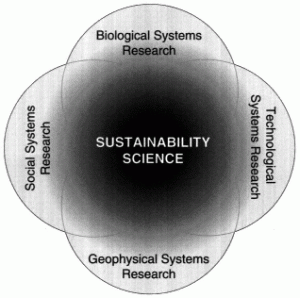Can you define sustainability science?
On our first day of Beam Reach fall 2011 sustainability science class, we were asked what seemed to be a rather simple question: “What is the definition of sustainability science?”. When we went to put our pens to paper we quickly discovered that this seemingly simple question really had no simple answer. My initial definition was “Using scientific research and methods to improve the sustainability of natural resources”. My classmates had varying degrees of similar answers, but it led to the question: what is sustainability science REALLY?
The very simple definition that Val gave us seemed to lead us on the right track: “A quest for basic knowledge that could be used in a very practical way”. It is the science that starts at the very basics of how ecosystems work, and then links many different parts of our world. It involves finding a balance between meeting human needs and preserving the natural way that the ecosystems providing for us work. There is a huge overlap of different fields that contribute to creating sustainability science, as depicted by the National Academy of Sciences in the book Our Common Journey: A Transition Towards Sustainability (1999):
This diagram shows how four areas of research all contribute to the sustainability science field. First, biological science research is used in order to understand  the natural systems in which we are utilising and affecting. Technological systems research is used to determine the technological advancements that can be made to move towards a goal of sustainability. Geophysical systems research is used to determine how we are affecting the earth in terms of climate and geography, which in turn could potentially affect the biological systems in which we are utilising. Finally, social systems research is used to assess society’s values and points of view towards human impact on the earth’s systems.
After putting some more thought into the idea of sustainability science, I realized how big of a challenge is it for us as a society to move towards a sustainable way of life. It not only involves different aspects of science, but it also involves political and social aspects, and it is inevitable that the parties involved will have disagreements on the best approach given their differences in point of view.
Sustainability science is a rather simple term that is becoming ever more commonly used in today’s society, but don’t be fooled, it is deceivingly complicated, but will be well worth the effort in the future if we are able to stay on a path to a sustainable way of life, where we have less impact on the earth and are able to find the balance between our needs and preserving natural systems for generations to come.




 Twitter
Twitter LinkedIn
LinkedIn Facebook
Facebook